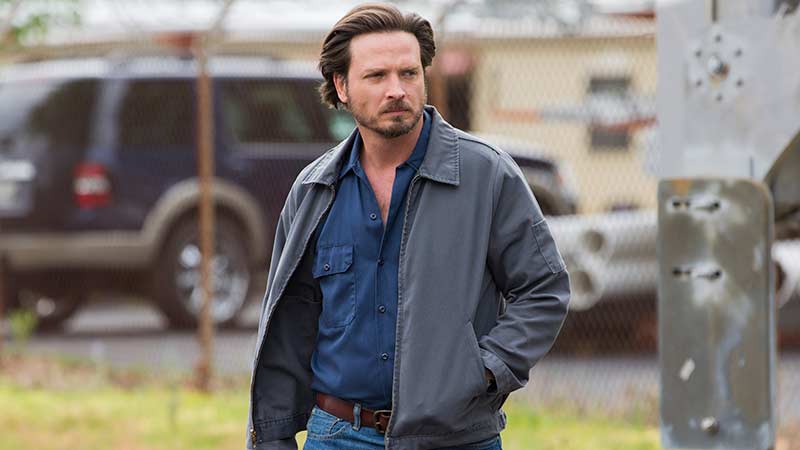Rectify Goes Out On Its Own Terms
Written by Ian Thomas Malone, Posted in Blog, Pop Culture
The question of Daniel Holden’s innocence has always been Rectify’s low hanging fruit. If Sundance’s first original drama aired on network TV, the ads every week would feature variations of “did he do it?” along with some gripping music and a voiceover, but creator Ray McKinnon never made that the focal point of his masterpiece. In the week leading up to Rectify’s finale, I got the sense that we weren’t going to get any definitive closure. The four seasons we spent with Daniel remind us that life doesn’t work like that. Thankfully, the finale didn’t tell us anything different.
It’s easy to forget that the entirety of the show takes places over a few short months. The circumstances surrounding Daniel’s life barely change over the course of the series. He’s on the road to recovery and probable exoneration, but that’s about it thirty episodes later. Rectify’s pacing is a true marvel, moving at a glacier slow speed but with such precision that it’s easy to forget just how little time has passed, though for a show about a man who spent nineteen yeas in solitary confinement, it feels oddly fitting.
Part of the beauty of Rectify is that we’ll never know if Daniel really did it or not. The show supplied enough details to suggest Chris Nelms killed Hanna Dean, but never fully lets its lead off the hook. Daniel himself claimed to not remember in the season opener, understandable considering he was on mushrooms that night. Most shows would be ripped apart for not definitively revealing the killer, but Rectify managed to frame its narrative so that it almost would have been a cop out to supply the answer.
That’s also really not what Rectify was ever about. As Daniel put it in the finale, an exoneration would be only good for an occasional visit home, plus any future Google searches by artsy companions. He won’t get his years back. Some people in Paulie will always think he did it. Rectify never tried to trick its audience into thinking otherwise.
I didn’t think the season finale was the best episode of the season. I’m glad it didn’t try to be. There were so many deeply moving scenes throughout the season that you almost couldn’t imagine that there were any heartstrings left to tug. Of course Rectify managed to find a few, but the goodbyes offered in the final episode ended on a happier note than what we’ve come to expect from the show over the years.
Rectify’s conclusion had all the makings of a proper TV finale set through the lens of one of the most unique shows ever to air. We got to see familiar faces one last time, without the kind of shock scene that would have felt out of place. The best TV finales are the ones that remind you why you loved the show to begin with. The final dream sequence offered the only kind of conclusion Rectify could offer, bringing the show to an end knowing full well that Daniel Holden’s story is far from over.
Few shows demonstrate such mastery of the craft. Like The Wire before it, Rectify won no major awards and never achieved a sizable following while it was on the air. Both are fairly unwelcoming in their brutally honest deliveries, which rarely spare punches to their characters. Hopefully history will rectify Rectify’s standing in this so-called “golden age of television,” but until then we can rest easy knowing what a fantastic piece of art we got to enjoy.












Very astute observation. Surely if this was a network program it would be focused on will he or won’t he. This was really more about Daniel’s journey and for that matter the journey of all the lives that he touched.